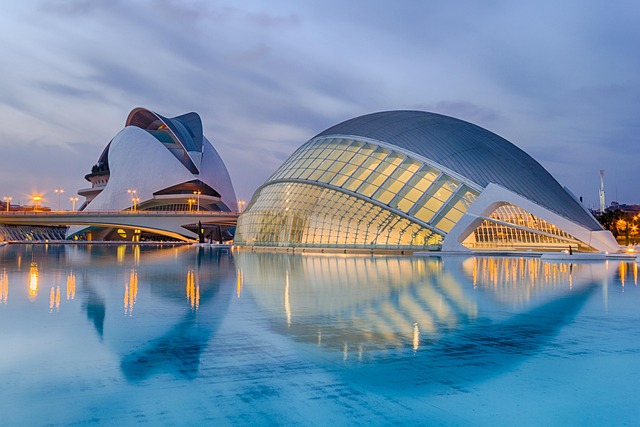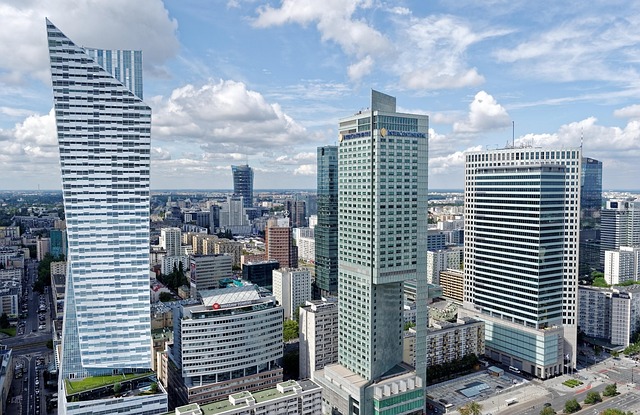Khalid Bin Walid Road (formerly D-Block) in Karachi has evolved from a quiet residential area to a bustling commercial hub since the 19th century, now serving as a vibrant testament to the city's character. This dynamic thoroughfare acts as a vital link connecting commercial centers, residential areas, and key landmarks, facilitating movement, trade, and economic growth due to its proximity to ports and industrial zones. However, it faces significant traffic congestion during peak hours and strategic interventions are planned to enhance its functionality, including expanding road capacity, improving public transport, and integrating smart traffic management systems.
“Khalid Bin Walid Road, a historic artery of Karachi, stretches through the heart of Pakistan’s vibrant metropolis, weaving a crucial connection in the city’s infrastructure. This article delves into the rich history of this iconic route, from its origins to its significant impact on modern-day travel. We explore how Khalid Bin Walid Road acts as a vital link between key locations, facilitating efficient movement and enhancing Karachi’s connectivity. Furthermore, we discuss challenges faced and future developments planned along this dynamic corridor.”
- The History of Khalid Bin Walid Road in Karachi
- Significance and Impact on the City's Infrastructure
- How it Connects Key Locations and Facilitates Travel
- Challenges and Future Developments Along the Route
The History of Khalid Bin Walid Road in Karachi

Khalid Bin Walid Road, a prominent thoroughfare in Karachi, boasts a rich history intertwined with the city’s growth and evolution. Originally known as D-Block during the colonial era, it was later renamed after Khalid Bin Walid, a renowned companion of Prophet Muhammad (PBUH) in recognition of his significant contributions to Islam. The road has witnessed the bustling rise of trade, commerce, and industry since the 19th century.
As Karachi expanded, so did its infrastructure, and Khalid Bin Walid Road became a vital link connecting various parts of the metropolis. Over time, it evolved from a quiet residential area to a bustling commercial hub, housing numerous businesses, markets, and institutions. Today, it stands as a testament to Karachi’s vibrant and dynamic character, continuing to play a pivotal role in the city’s economic and social landscape.
Significance and Impact on the City's Infrastructure

Khalid Bin Walid Road, a significant thoroughfare in Karachi, has played a pivotal role in shaping the city’s infrastructure and connectivity. This bustling road, known for its vibrant atmosphere and heavy traffic, acts as a vital link between various parts of the metropolis. It connects important commercial hubs, residential areas, and key landmarks, facilitating seamless movement of people and goods.
The impact of Khalid Bin Walid Road extends beyond mere transportation. It has contributed to the economic growth of Karachi by enabling efficient logistics and trade. The road’s proximity to major industrial zones and ports makes it a strategic gateway for businesses, enhancing the city’s overall accessibility and competitiveness on the national and international fronts. Furthermore, its role in urban planning and development cannot be understated, as it serves as a backbone for the city’s infrastructure network.
How it Connects Key Locations and Facilitates Travel

Khalid Bin Walid Road, a vital artery in Karachi, serves as a strategic connector between key locations across the city. Its extensive reach enables seamless travel and facilitates efficient movement of people and goods. The road weaves through diverse neighborhoods, linking commercial hubs, residential areas, and important landmarks, thereby reducing travel times and enhancing connectivity.
By providing direct access to major thoroughfares and transportation hubs, Khalid Bin Walid Road plays a pivotal role in Karachi’s overall mobility. It acts as a gateway, enabling easy commutes between business districts, educational institutions, and healthcare facilities. This efficient network contributes to the city’s vibrancy, supporting its bustling economy and fostering social interactions among its diverse population.
Challenges and Future Developments Along the Route

Khalid Bin Walid Road, a vital artery in Karachi, has long faced challenges that impact its functionality and accessibility. The route, despite its strategic importance, struggles with heavy traffic congestion, particularly during peak hours. This issue is exacerbated by inadequate infrastructure, including limited lanes and a lack of efficient public transportation options along the corridor. The dense urban environment surrounding the road further compounds these problems, making navigation difficult for both residents and commuters.
Looking ahead, addressing these challenges is crucial for the future development of Khalid Bin Walid Road. Plans are underway to enhance the road’s capacity through strategic interventions such as adding more lanes, improving public transport infrastructure, and integrating smart traffic management systems. These developments aim to alleviate congestion, reduce travel times, and improve overall mobility in Karachi. By implementing these measures, the route is poised to become a more efficient and seamless connection, benefiting both local residents and visitors alike.
Khalid Bin Walid Road, a pivotal connection in Karachi, has not only woven itself into the city’s historical fabric but also transformed its infrastructure. Its strategic location facilitates seamless travel between key landmarks, enhancing the overall connectivity of the metropolis. As the road continues to face challenges, future developments promise to further revolutionize travel in Karachi, ensuring it remains a vital artery for years to come.



